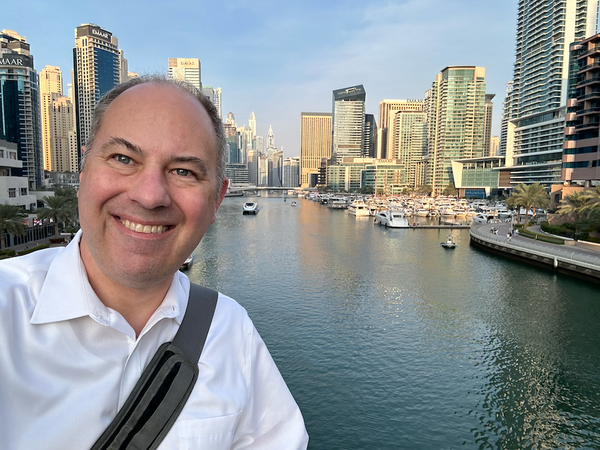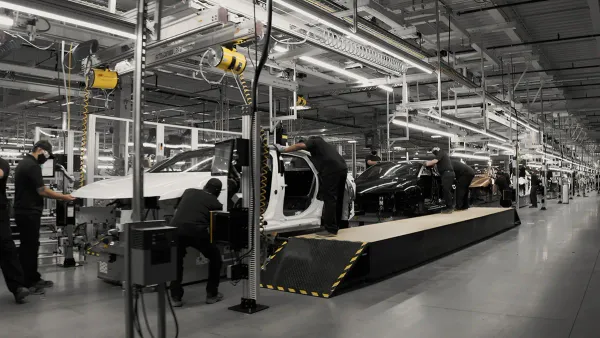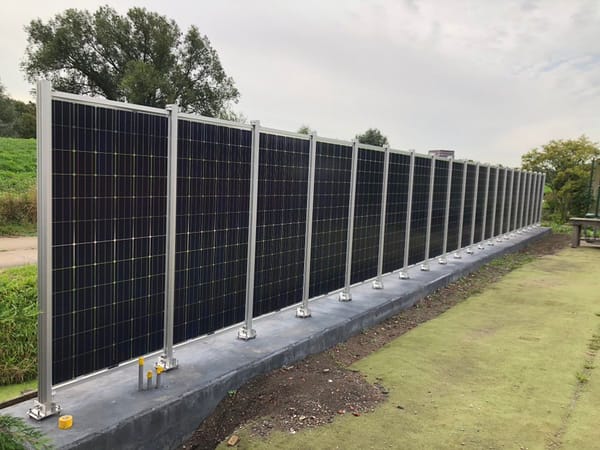Five ways climate change denial makes sense to deniers
Good Afternoon!
A healthy society requires a certain amount of disagreement, but what if the disagreement makes no sense? Living with and talking to climate deniers can be exhausting. But their denial does make sense, from some perspectives.
-Mike
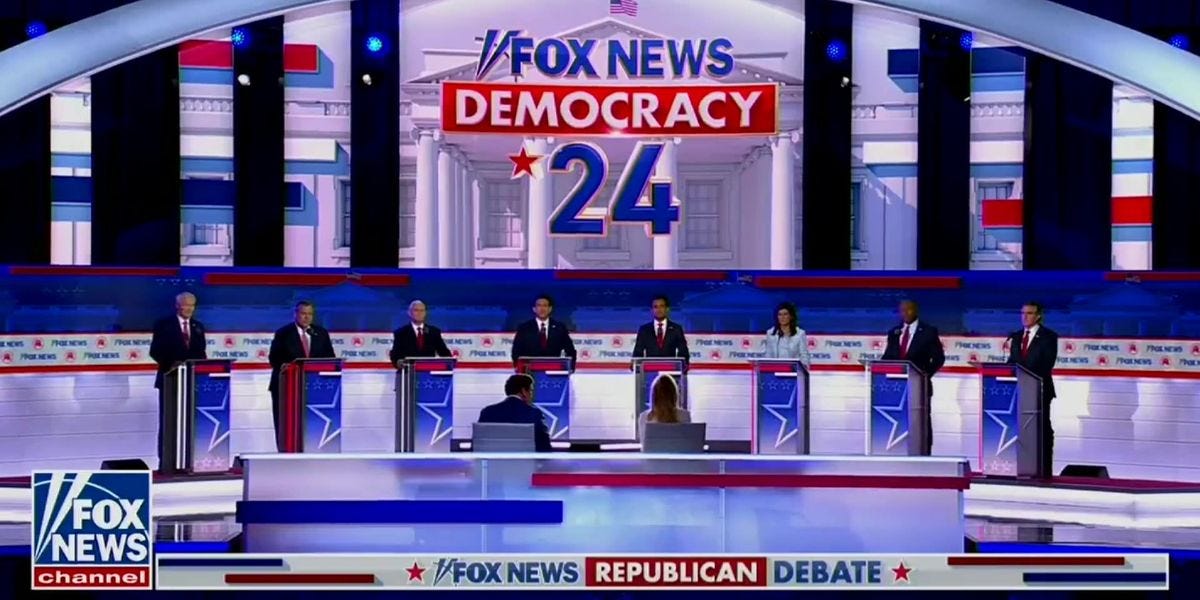
It’s talked about as a galvanizing moment, at last Wednesday’s debate, when not a single Republican presidential candidate raised their hand to declare that they believe human-driven climate change has been responsible for the increased number of natural disasters this year.
But it wasn’t really so galvanizing, was it? If you’re part of the 75% of Americans who ascribe to the thinking that climate change is altering our world before our very eyes, then you’ve likely bumped into, know personally, or have argued with a climate change denier.
The run-ins can be frustrating: Parents, family, work acquaintances. I have a friend, a former meteorologist, that doesn’t agree with anthropomorphic climate change thinking. That one really forced me to take a step back!
Why do the climate deniers insist on their denial?
It’s so frustrating, especially if we’re going to actually fix the world, it’s gonna have to be all hands on deck. Why are we wasting time debating facts, when it’s plain as day that the world is on fire because of human activities?
After doing some reading, I can think of five reasons why people might not believe in human-driven climate change, and that in many ways these folks are quite rational in their own minds.
- For many, believing in climate change requires “faith” in science.
Can you remember the day when you decided that science and scientists were something you always trusted? For me that came at an early age, as my physicist grandfather would regale me with tales of great mathematicians and scientists and how they changed the world for good. When I was nine I followed his advice for a school project on creating a holiday by proposing we create “Babbage Day”, named after Charles Babbage who invented the modern computer in the 1800’s. “Babbage” became short for “I love you” with my grandfather.
Many Americans probably lack these kinds of moments in their lives, either because of they lack solid education or live in environments where science or engineering is not valued, which is probably a big chunk of our nation.
Making matters worse, many Americans have turned their trust in scientists into a faith statement. This sets up a clash, since a Pew Research study found 35% of American Christians found science conflicted with their faith, while around the world, Buddists, Hindus, and Muslims reported much less conflict between science and their religion.
Next time you drive through a neighborhood with Jesus icons on the front lawn, imagine them replaced with “In this house we believe” signs. The iconography is a statement of the owner’s immovability.
- Climate change is a complicated topic not easily resolved with commonly observed evidence.
Although there’s talk of giant ice sheets falling into the ocean, the lived experience of climate change is difficult for the average person to see. Climatologist Andrew Dessler says we should instead think of climate change’s impact as “a death by a thousand cuts”, where we lose what used to be normal in small ways that only add up over time, and even over a lifetime maybe hard to see unless you’re really looking. Climate change won’t result in sheets of fire sweeping across the country any time soon, or water rising a foot or two in a year. The change will be gradual.
For instance, it was 101 degrees Fahrenheit in Chicago yesterday, a record. “But hey! We’ve had 100-degree heat in the past, so no big deal right?” is an easy way to deny the problem. The devil is in the details: 100+ temperatures haven’t been seen since 2012, and it was the first time we’ve had this kind of August heat for close to 100 years. Clearly an anomaly, among many others, like how little ice Lake Michigan had last Winter. But now you’re boring people, and that’s when it’s really hard to make a point.
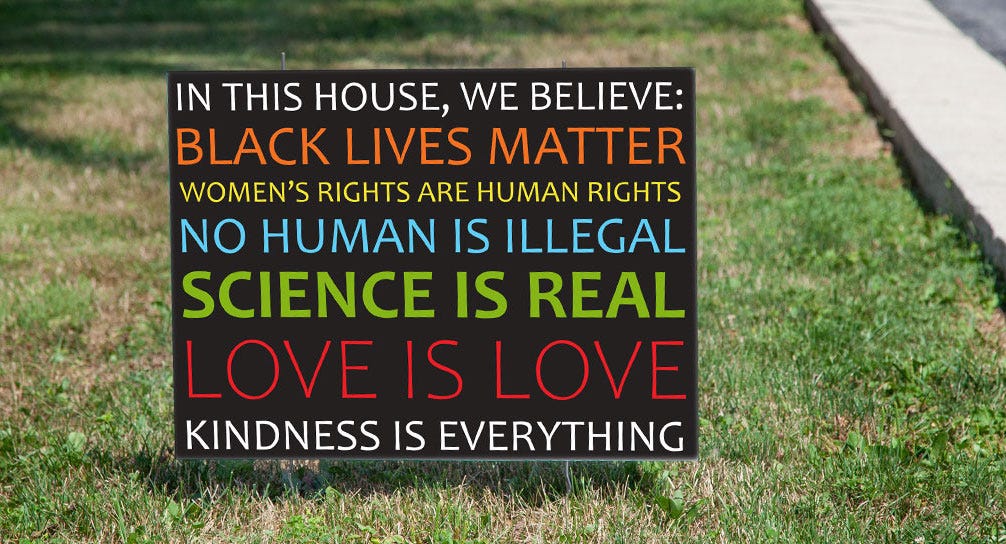
- Cognitive dissonance: Accepting the science means accepting complicity.
Most people don’t like to be found at fault. The basic problem with climate change is that practically every American alive is somehow at fault for climate change. You drive a big, fancy car or truck, you’re at fault. You enjoy a cheeseburger, you’re causing climate change. So, if you like your trucks and cheeseburgers, and you don’t like feeling bad about it, just deny climate change!
Cognitive dissonance happens when your beliefs don’t align with your actions. You can either change your beliefs, or change your actions. But if everyone you know chows down on cheeseburgers and drives big trucks, it becomes socially challenging to change your actions, even if you disagree. So, reduce your cognitive dissonance by simply changing your beliefs!
The GOP presidential candidates who denied climate change are just reading the room full of truck driving, cheeseburger lovers. “You’re not bad people,” they’re telling voters. “Climate change isn’t real, it isn’t caused by you, and I’ll fight for the right to keep saying you’re great!”
- There’s no obvious cost in denial, but there is in accepting the fact.
As the GOP candidates are proving, actually accepting human-driven climate change means you have to make costly changes. No more big, comfy truck, fewer cheeseburgers and more vegetables, pay to switch from natural gas stoves to electric induction, and a whole lot more. The financial cost of change may come out in the wash, but there’s a lot of cultural change required to mitigate climate change. Who really wants to do that? Have you seen how cool a Dodge Ram Power Wagon is? Why would you give that up so the ocean won’t maybe rise a quarter of a millimeter? Let someone else save the planet. I’m getting a cool truck!
- Tribalism is reinforced in our post-modernist media landscape
If you don’t like the way the people around you think, it’s pretty easy to find someone who (ahem!) blogs like you think, or has a podcast, or TV show like you think. We live in an era when Fox News is not actually news, but operates like opinion-driven entertainment. Once you’re in a tribe, you get reinforcement for being in the tribe, not challenges.
So, what are we supposed to do about deniers?
Before I seem high minded, let me say that this advice is to myself, as much as anyone else. When I encounter deniers, I struggle to remember four things:
- It takes a while for Americans to make social change, but we eventually do. Gay marriage, ending racial discrimination, and women’s liberation took longer than we wanted (and it’s still evolving), but it happened.
- Even if climate deniers manage to get in power, there’s still lots of ways we can keep moving forward. And there’s lot of signs that the Biden Administration’s Inflation Reduction Act has made the American economy’s green transition irreversible.
- Being demonstrative and argumentative doesn’t win acolytes, live your truth instead.
- Don’t burn bridges. Keep in mind that the person you disagree with is someone we’ll need to work with if climate change is going to be solved.
In the long term, I’m optimistic. But we should settle in and count on it being a long term.
Other Things Happened
- A good review of mid-range cost EVs. The winner might surprise you.
- Fantastic graphic explainer of how Europe’s old nuclear plants can help fight climate change.
- G-20 countries poured $1 trillion into fossil fuel subsidies last year, despite pledges to reduce spending.
- Commercial insurers are raising coverage, and sometimes refusing coverage for commercial real estate because of climate change.
- 43% of planned steelmaking capacity is now based on electric arc furnace tech, rather than coal-fired. 7% of global emissions comes from steel making.
Welcome to the end of the email! Here’s when the average person eats dinner in each U.S. state


